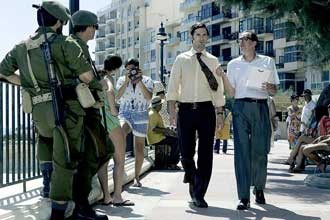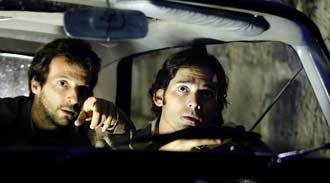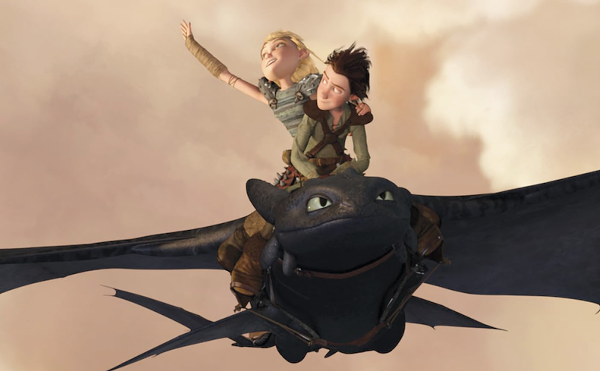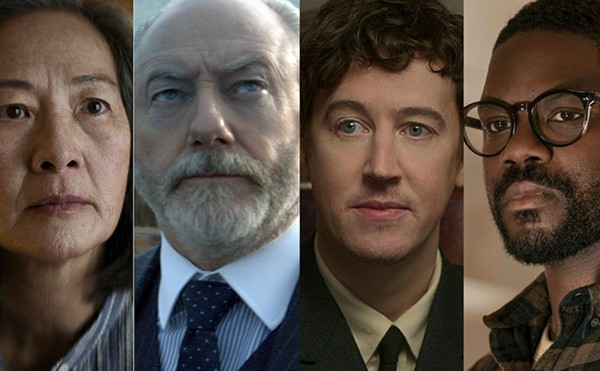Although commonplace by today's standards, the 1972 Olympic murders marked a turning point in terrorism
The death toll from the terrorist operation at the Munich Olympics would be unremarkable for an average day of suicide bombings in Iraq. Many, many more died in New York on September 11, 2001, Bali on October 12, 2002, Istanbul on November 15, 2003, Madrid on March 11, 2004, and London on July 7, 2005. Yet September 5, 1972, remains an extraordinary date in the history of atrocity, for the callous way in which 11 athletes were murdered while millions from every time zone watched.
| Eric Bana, left, portrays Avner, an Israeli agent charged with assassinating 11 Palestinians believed guilty of planning the murder of 11 Israeli Olympic athletes at the 1972 games in Munich. |
City states in ancient Greece, it is said, suspended hostilities for the duration of the Olympic games. And one of the principal arguments for reviving the event in modern times was that it would inspire reconciliation; if all the nations came together in peaceful competition, they could beat their swords into épées. Distracted from designs for war, they might even develop mutual respect. Never mind that the games have become war by other means, in which the number of medals, not nuclear warheads, serves as an index to national potency. The ideal of individual achievement has been tarnished by the peculiar ceremony of raising the flags of the winners and playing their national anthem. And where you watch the Olympics determines what you see. Though the American Broadcasting Company's coverage has made it appear as if Americans dominate, when I spent the summer of 1996 in Natal, I was impressed by how often South African athletes showed up on the TV screen.
A symbol of universal amity, the Olympics resumed in 1896, just after the conclusion of the Sino-Japanese War, but the century that followed has not been placid. Pole vault, volleyball, and butterfly have been powerless to prevent mass slaughter in dozens of conflicts from the Spanish-American War and the Boer War to Rwanda and Kosovo. Nevertheless, the quadrennial spectacle of athletes converging from the corners of the globe to affirm vitality, not contrive fatality, inspires hope - which is why attacking Olympic contenders seemed such an affront to our common humanity.
| By hosting a successful Olympics, West Germany hoped finally to rehabilitate the nation's reputation. Instead, Germany again became a place where thugs butchered Jews. |
In 1972, the Olympics went to Munich, their first time back on German soil since 1936, when Adolf Hitler attempted to make the production into a showcase for Aryan supremacy. Munich had been home to Wassily Kandinsky, Paul Klee, and Franz Marc, but the city's role in the birth of modern art has been overshadowed by more noxious associations. The Munich Pact of 1938, by which Britain and France ceded Czechoslovakia's Sudetenland to Germany, became a byword for craven appeasement. Munich, where Hitler staged his beer-hall putsch, is the cradle of Nazism, and by hosting a successful Olympics there, six miles from the Dachau death camp, West Germany (Germany would not be reunified for another 18 years) hoped finally to rehabilitate the nation's reputation. Instead, Germany again became a place where thugs butchered Jews.
At 4:40 a.m., eight commandos scaled the fence of the Olympic village and slipped into the compound where the Israeli men's team slept. The intruders were a unit of Yasir Arafat's Fatah movement that called itself Black September. After immediately slaying two Israelis, the Palestinians took nine others captive, threatening that, unless 236 political prisoners were released by noon, one additional hostage would be killed every hour. German officials rejected the demand, but, refusing the Israeli government's offer of assistance, bungled the crisis. Unsuccessful at negotiating a hostage release, they promised the captors a plane to fly everyone out of Germany. At the airport, troops untrained in counterterrorism botched a scheme to take out Black September. When the shooting stopped, all the Israelis were dead, but three Palestinians were still alive. They were eventually given safe passage to Libya, where they were hailed as heroes. In his new film, Munich, Steven Spielberg focuses on the aftermath of the bloodbath, the Mossad's campaign to hunt down those responsible for slaughtering 11 unarmed men whose athletic prowess was no match for zealots with guns and grenades.
| Geoffrey Rush, left, and Mathieu Kassovitz co-star. |
Even in 1972, before the proliferation of dozens of TV channels, few individual broadcasts could command the attention of most of the public. However, the Olympics were an exception, even without the intrusion of something bizarre. The whole world was watching when swimmer Mark Spitz earned an unprecedented seven gold medals and Olga Korbut revolutionized gymnastics. And it continued to watch hour after hour as cameras scrutinized the Israeli compound in Munich's Olympic village. A TV set was on inside, and the terrorists watched, along with the rest of the world, as German snipers set up what they thought were hidden positions just outside. Through the window we saw a hostage being pistol-whipped. And we followed everyone to the airport for the final, fatal confrontation.
The games were suspended for 24 hours, and during a memorial service in the Olympic stadium, representatives of almost every nation lowered their flags to half-staff. Arab delegates refused, asserting through their unfurled banners that the dead athletes deserved execution. Yet, whatever the grievances, real or imaginary, that Black September bore against Israel, the slaughter of innocents cannot be justified. The Munich Massacre was certainly not the first atrocity committed for a self-righteous cause. But it pioneered the live broadcasting of remote disasters. It inaugurated our era of terrorism as a global spectator sport. •

















